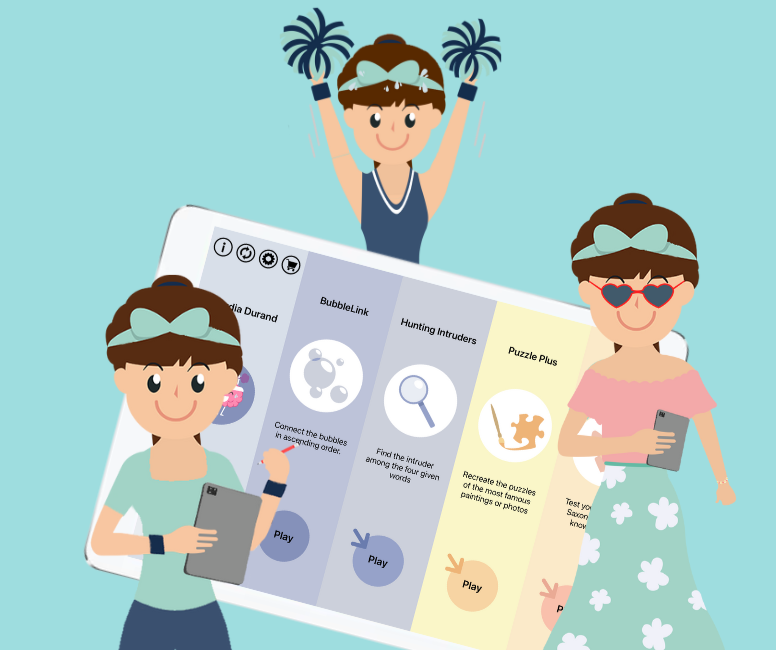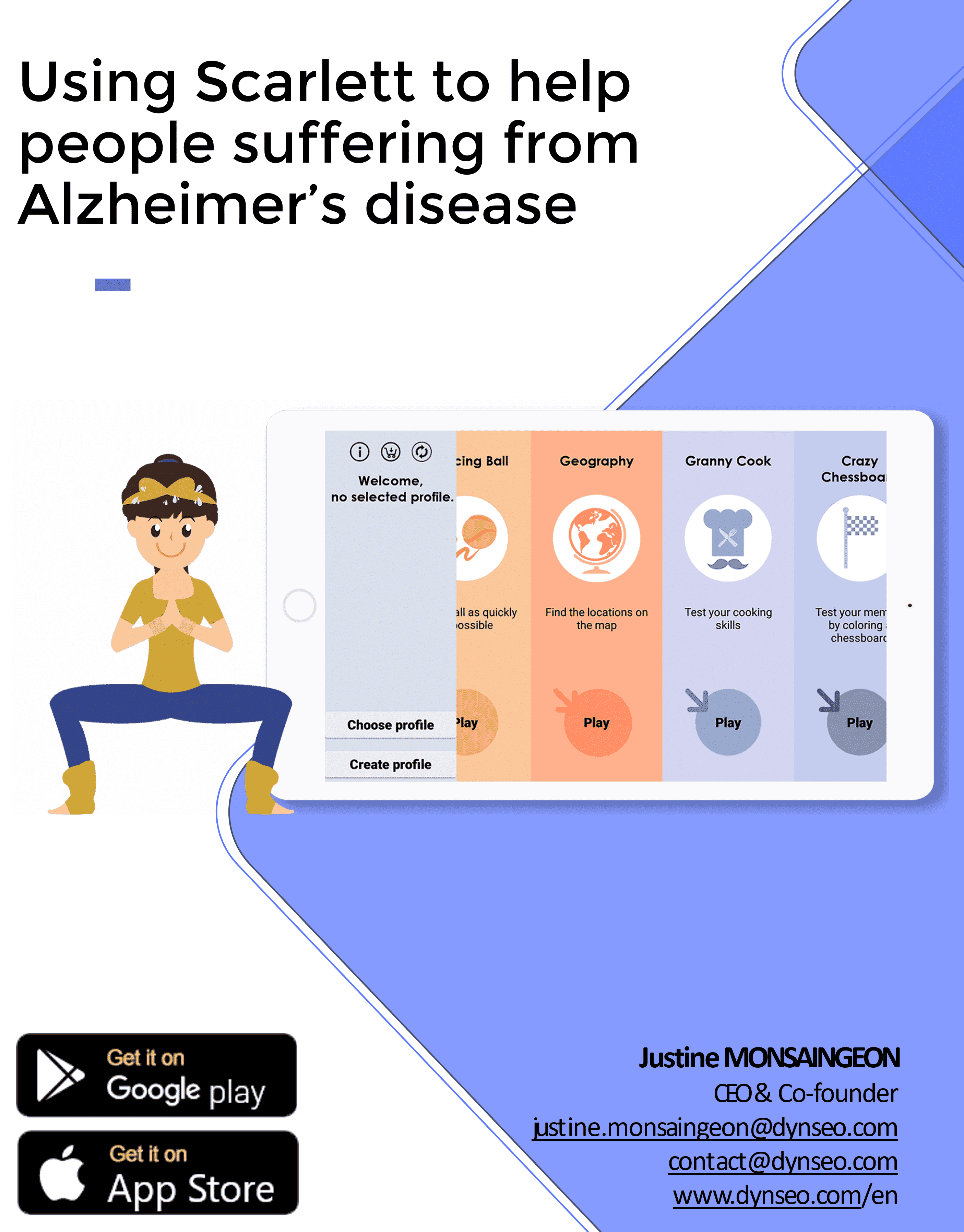Alzheimer’s disease, a neurodegenerative pathology that mainly affects the elderly, is characterized by progressive alterations in memory, cognition and behavior. In addition to the challenges of day-to-day management, family members and caregivers are often faced with the difficult task of managing fear and anxiety in individuals affected by this devastating disease. This emotional dimension of the disease calls for an empathetic approach and specific strategies to improve quality of life for sufferers and their families.
Understanding fear and anxiety in Alzheimer’s patients
Cognitive and emotional changes associated with illness
The cognitive and emotional changes induced by Alzheimer’s disease are profound and complex, significantly influencing the daily lives of sufferers. On a cognitive level, memory, reasoning capacity and spatial understanding are progressively impaired. These changes can provoke episodes of confusion and disorientation, creating a fertile ground for the experience of fear and anxiety.
Drs. Catherine Martin, a neuropsychologist specializing in neurodegenerative diseases, underlines the emotional impact of these changes, saying: “People with Alzheimer’s often face a loss of reference points that can be profoundly anxiety-provoking. This loss of control over fundamental aspects of daily life can generate feelings of insecurity and apprehension. It’s crucial to recognize that fear often results from this heightened vulnerability and difficulty interacting with a world that is increasingly complex for them.”
Fear and anxiety triggers
Various factors can act as triggers for fear and anxiety in individuals with Alzheimer’s disease. Recognizing these specific elements is crucial to implementing appropriate interventions. Here are a few concrete examples of triggers:
Environmental changes :
– Exposure to unfamiliar or noisy places, such as shopping malls.
– Frequent moves or reorganization of living space.
Complex social interactions :
– Fast-moving conversations or ambiguous communication.
– Large or noisy groups at family gatherings.
Confusion related to daily tasks:
– Difficulty following unfamiliar routines
– Inability to recognize objects or perform daily activities such as dressing.

Excessive sensory stimulation :
-
- Bright lights, loud noises or intense smells.
- Visually overloaded environment, leading to overstimulation.
Confrontation with unknown objects :
-
-
- Medical devices or unfamiliar household objects.
- Unusual situations, such as sudden changes in daily routine.
-
Understanding these examples enables us to adapt approaches to managing fear and anxiety by minimizing these potential triggers, thus helping to create a more soothing environment for people with Alzheimer’s.
Designing the living space
The design of the living space must take safety and comfort into account. Avoiding complex configurations, minimizing potentially disruptive objects, and favoring a simple, intuitive layout can help prevent stressful situations. Familiar, well-lit spaces also help reduce anxiety.
Use of visual reminders
Visual reminders in the form of photos, notes and calendars can help anchor memories and provide temporal cues. Images of family, friends and happy times can evoke positive emotions, reinforcing a sense of connection with the past and present.

Integration of structured routines
People with Alzheimer’s benefit greatly from consistent routines. Establishing fixed schedules for meals, activities and rest helps create a sense of predictability and security. Smooth transitions between the different stages of the day also minimize the risk of confusion and emotional discomfort.
Sharing quality time
Spending time together and sharing pleasant moments is an essential strategy for promoting the emotional well-being of people with Alzheimer’s disease. Engaging in meaningful activities, such as looking at photos, listening to favorite music, or participating in artistic activities, can strengthen emotional bonds and create positive memories. These quality moments help to establish an emotional connection, offering precious reassurance in the often bewildering daily grind of illness.
By combining these strategies, family members and caregivers can play an essential role in creating a supportive environment, promoting emotional stability in people with Alzheimer’s disease.
Positive sensory stimulation
Positive sensory stimulation plays a significant role in managing fear and anxiety in people with Alzheimer’s disease. By focusing on enriching sensory experiences, we can improve the emotional well-being and quality of life of affected individuals.
Music therapy
Music therapy is a powerful approach to soothing emotions and stimulating memories. Familiar melodies can evoke positive feelings, reduce stress and promote a relaxed atmosphere. Tailoring the music selection to the sufferer’s personal preferences makes it possible to personalize this sensory stimulation.
Aromatherapy
Aromatherapy, using pleasant scents, can have a positive influence on our emotional state. Familiar scents, such as lavender or vanilla, can bring comfort and create a soothing atmosphere. It’s essential to ensure that the fragrances used are not too strong, to avoid any risk of over-stimulation.

Scarlett, an app for sharing good times
Scarlett is the perfect memory games for seniors for sharing good times together! Games are cultural, so as you play, you’ll revisit memories of your life, your experiences and your youth. All thanks to fun games such as music, recipes, history, general knowledge…
Using memories is the most effective way of working on memory, as well as the most motivating.

Useful resources
Alzheimer’s Association https://www.alz.org/
Alzheimer’s Foundation of America https://alzfdn.org/
National Institute on Aging (NIA) – Alzheimer’s Disease Education and Referral Center (ADEAR) https://www.nia.nih.gov/alzheimers
Alzheimer’s Society (UK)
https://www.alzheimers.org.uk/
Dementia UK https://www.dementiauk.org/
Alzheimer’s Research UK https://www.alzheimersresearchuk.org/
Other articles that might interest you:
The Role of Cognitive Apps in Speech Therapy for Alzheimer’s Patients
Alzheimer’s disease is a progressive neurological disorder that primarily affects memory, thinking, and behavior. As...
Memory Apps for Alzheimer’s: Enhancing Recall in Speech Therapy Sessions
Alzheimer's disease is a progressive neurological disorder that primarily affects memory, thinking, and behavior. As...
Cognitive Rehabilitation Apps for Speech Therapy with Alzheimer’s Patients
In recent years, the landscape of cognitive rehabilitation has evolved significantly, largely due to the advent of...






